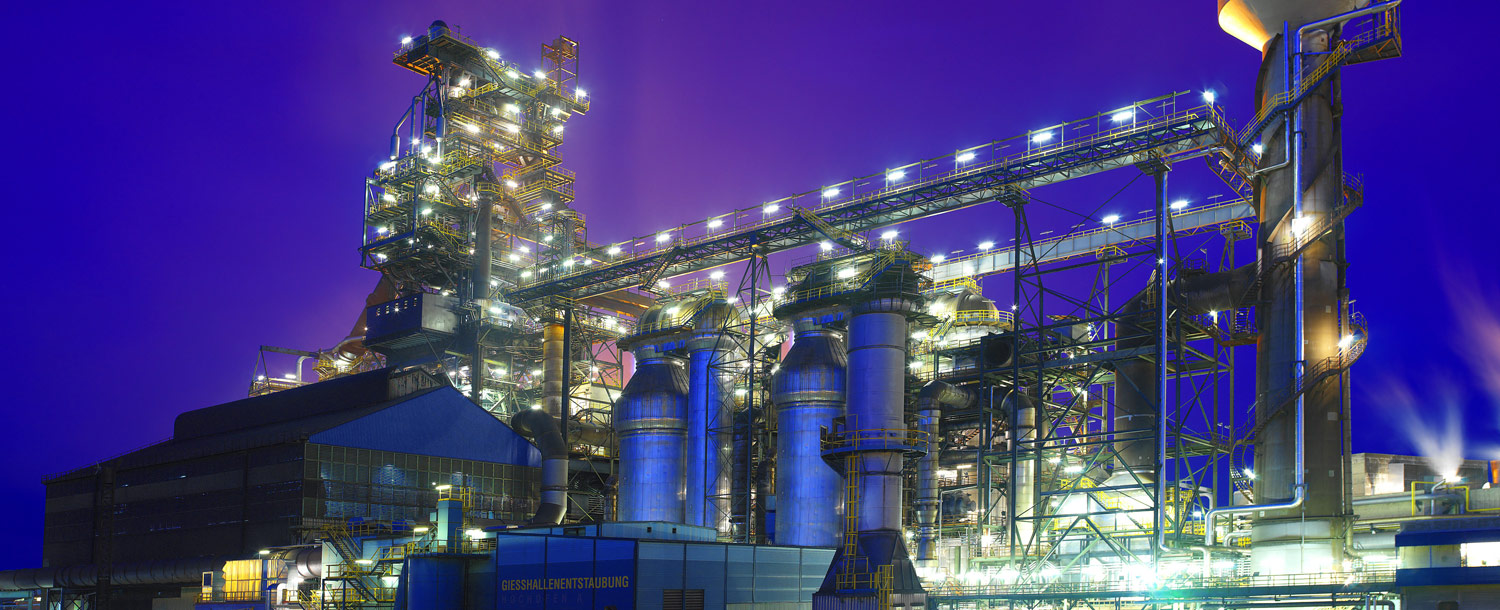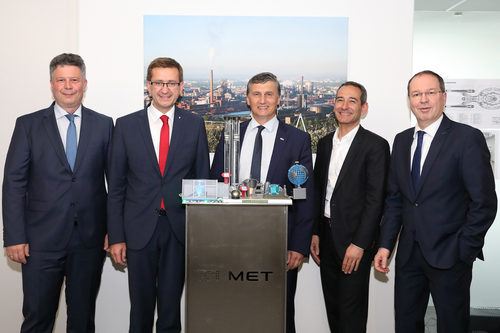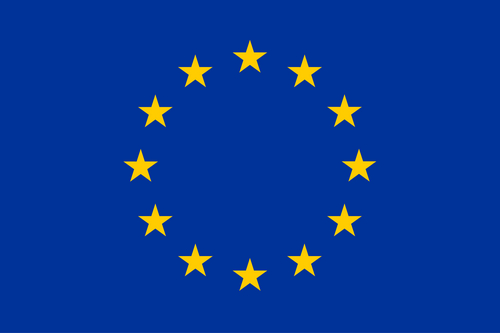Markus Achleitner, Provincial Councillor for Economic Affairs and Research: “The targeted reduction in CO2 emissions is both a challenge and an opportunity for Upper Austria as a business location”
In order to realise the vision of green steel production in Europe, a targeted concentration of forces from industry and research is required at EU level. The development of a pan-European approach should pave the way for the steel industry towards a low-carbon future. The metallurgical competence centre K1-MET is laying a solid foundation for this master plan in its second funding period from July 2019 to June 2023, for example with the “LowCarbonFuture” research project.
The EU's ambitious goal of reducing CO2 emissions by at least 80 per cent by 2050 is a challenge for energy-intensive industries such as steel production. “However, for Upper Austria as a technology location with its innovative industry and research, this also represents an enormous opportunity to clearly establish itself as a leading energy region and to further expand its pioneering role and technology leadership,” emphasises Markus Achleitner, Provincial Councillor for Economic Affairs and Research.
“If we still want to have an energy-intensive industry in Europe in 2030, then we need these innovations. The research work of the K1-MET competence centre in Linz makes a significant contribution to securing and further expanding Upper Austria’s leading position and pioneering role in the field of metallurgy,” explains Achleitner. The province of Upper Austria is contributing around EUR 2.1 million to K1-MET’s total project volume of around EUR 22.7 million in the funding period from 2019 – 2023.
The “LowCarbonFuture” research project places the opportunities currently being developed for steel production and the innovation funding instruments at national and EU level in a broader regulatory, political and infrastructural context, which is necessary to guide the European steel industry towards a low-carbon future. A total of five renowned research centres from different EU countries are working on the creation of such a roadmap: Germany, Italy, Belgium, Sweden and Austria. The Austrian partner is the Linz-based metallurgical research centre K1-MET.
“As part of the project, the different approaches to CO2 reduction will initially be summarised. On the one hand, the focus is on the development of forward-looking technologies, for which extensive funding programmes are currently being developed at European level. On the other hand, the necessary regulatory and infrastructural framework conditions will be analysed. An overall roadmap will be derived from the results of these analyses,” explains Dipl.-Ing. Thomas Buergler, CEO of K1-MET.
The findings from this project will also be incorporated into the strategic research agenda of the European Steel Technology Platform (ESTEP) and into the revision of the “Low Carbon Europe 2050” roadmap of The European Steel Association (EUROFER). The project is financed by EU funds from the “Research Fund for Coal and Steel” (RFCS) – in addition, this initiative is supported by all major European steel producers.
K1-MET’s tasks in the project range from the evaluation of current European research projects in the field of steel production to the development of scenarios for technology transfer between the steel industry and stakeholders in other industrial sectors in the direction of sector coupling for CO2 reduction.
Founded in 2008, the COMET competence centre K1-MET has been a competent innovation partner to the steel industry for many years and is one of the leading European research centres for metallurgical processes. “Upper Austria is already playing an important role in the green steel industry. K1-MET is also an important partner here,” says Dipl.-Ing. Dr Franz Michael Androsch, Head of Group Research at voestalpine AG and Chairman of the Supervisory Board of K1-MET.
A key objective of the COMET programme is to network the research and innovative strength of the funded competence centres internationally and make them visible. “The interaction between industrial and scientific partners works particularly well at the COMET Centre K1-MET, and we are very proud that the acquisition of hard-fought EU funding was so successful,” emphasise Dr Henrietta Egerth and Dr Klaus Pseiner, Managing Directors of the Austrian Research Promotion Agency FFG.
Production research for industry – with the key competences of information and communication technologies, mechatronics and innovative materials – is a particular strength of the UAR Innovation Network. “The range of innovative materials is broad – from renewable raw materials, plastics, composites and metals to hybrid materials and smart products. K1-MET is a key player in the field of metallurgy and plays in the top league at international level,” explains DI Dr Wilfried Enzenhofer, MBA, CEO of Upper Austrian Research GmbH – the lead company for research in the province of Upper Austria.
About K1-MET GmbH
The COMET Competence Centre K1-MET is one of the leading European research centres for metallurgical processes such as iron and steel production. The projects of K1-MET GmbH with industrial and scientific partners ensure Austria’s leading global position in the field of metallurgy. The focus of the research work is on the development, optimisation, modelling and simulation of metallurgical processes with the aim of minimising the use of energy and raw materials while increasing product quality and sustainability. K1-MET GmbH’s research programme is funded by the COMET Competence Centre Programme of the Austrian Research Promotion Agency in cooperation with the Federal Ministry for Digital and Economic Affairs (BMDW) and the Federal Ministry for Transport, Innovation and Technology (BMVIT) as well as the Provinces Upper Austria, Styria and Tyrol. In addition, K1-MET is also involved in research projects with national (FFG) and European (Horizon 2020, RFCS) funding organisations and industrial partners.
The Project “LowCarbonFuture” received a 100 % funding of the European Commission from the Research Fund for Coal and Steel (RFCS) under grant agreement No 800643.

 DE
DE EN
EN


